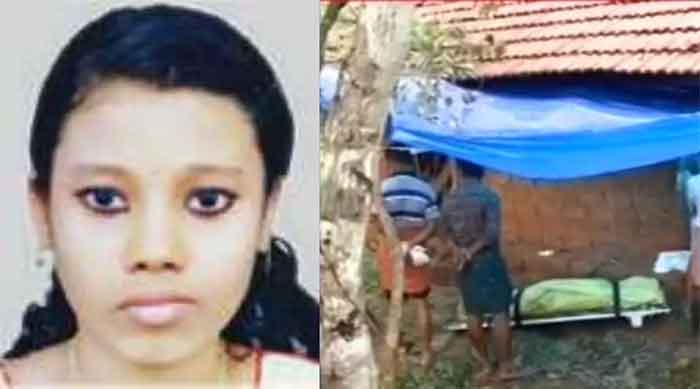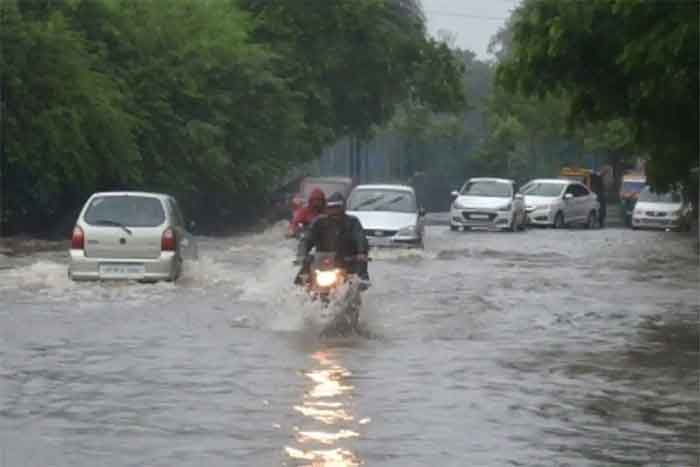
In June last year Devika, a student of class 9 in Malappuram district of Kerala, committed suicide as she could not access online lessons on the first day of the academic year, for want of a functioning television set at home.
The note she left for her parents simply said, “I am leaving”.
The incident sent shockwaves through Kerala, a state otherwise known for its high literacy rates, social welfare policies and empowerment of women and girls.
Devika, a smart and very studious daughter of a Dalit daily wage worker, was a casualty of the economic impact of the Covid-19 pandemic, which has destroyed livelihoods of millions of already low-income families across India. According to a report by the media portal News Minute Balakrishnan, Devika’s father the family’s only television set – needed to attend online classes- got damaged and he couldn’t get it repaired as he had no income during the lockdown.
 The tragic incident also highlighted the immense stress on all children due to the pandemic transforming everything from health and education to domestic and social lives of the population. Over the last year and a half, the world of most children has been reduced to home, the backyard, and staring at computer/mobile phones.
The tragic incident also highlighted the immense stress on all children due to the pandemic transforming everything from health and education to domestic and social lives of the population. Over the last year and a half, the world of most children has been reduced to home, the backyard, and staring at computer/mobile phones.
The biggest problem children identify is lockdown restrictions and the resulting social isolation. School students also face difficulties following the new online educational systems introduced by the government and school authorities.
The impact has been especially hard on children from marginalized communities – as in the case of Devika – due to lack of lack of digital devices, network availability and proper maintenance systems. According to social activists working for the rights of marginalized children at the national level, the government and local bodies implemented the new online schooling system without proper consultation with the marginalized communities and their children. As a result, a huge digital divide has occurred in the State.
“The tribal people are going through very difficult times because of the lockdown and related protocols imposed by the State. The government should provide tribal students attending online classes in each hamlet with a power connection, cable TV services, mobile phones and computers with broadband internet facilities, money to recharge connections. Uninterrupted power supply for these devices should be ensured. Every facility available to people living in cities and villages needs to be given to all communities. The Dalit, Adivasi and backward communities in the State should be able to lead a better life with dignity”, says Chitra Nilambur, a tribal activist and State President of Adivasi Aikya Vedi working among various Adivasi communities in 8 districts in Kerala.
The problems induced by Covid-19 are also very acute among fisherfolk communities in the State says Maglin Philomena Yohannan, State Convener of the Coastal Women’s Forum.
“The isolation and mental problems caused by the lockdown, and the lack of mobile, TV, internet, cable and other technical assistance, have caused serious issues among children in the community. But apart from Covid we are also facing the threat of climate change in recent years. Cyclones like Okhi and Tukatae have severely affected fisherfolk by damaging homes, fishing boats and equipment,” she said.
Maglin points out that children are also deeply affected by the loss of jobs and poverty in the community. They are subjected to a variety of abuse from people around them who are financially and mentally devastated by the loss of their homes and fishing equipment and are unable to repay their loans she says. And while the adults lost homes, working equipment and their life’s savings their children have lost books and toys, equally valuable from their perspective.
“When we talk about the impact of Covid issues on the education and survival of children in Dalit, Adivasi and fishing communities, we have to start from the unprecedented floods and natural calamities that have occurred in the last 3 years in Kerala” says Ajay Kumar, Director of RIGHTS, an organization working among these communities.
According to him most of the people, living in 27,000 Dalit colonies, nearly 4600 tribal villages and the coastal land of Kerala have faced neglect from the state government as well as local bodies in the aftermath of these disasters. They were continuously excluded from the benefits given by the government and even before they could recover from these natural calamities, Covid has ruined their livelihoods once again.
Following the 2018-2020 natural calamities, RIGHTS set up online classrooms for more than 1,000 children in marginalized communities in about 30 locations in 7 districts. They also distributed mobile phones and gadgets to the children who couldn’t access the online education because of financial as well as other limitations.
According to M Geethanandan, leader of Adivasi Gothra Maha Sabha, while the government is spending crores of rupees on funds and relief packages in the name of uplifting marginalized communities such schemes are not implemented effectively. This is because they are mostly designed in a top-down manner without any consultation with community members from the planning to implementation stage of the project.
Apart from the bureaucratic attitude another problem coming in the way of effective implementation is suspicion within government circles about social organizations, civil society and community movements who are willing to help with relief efforts. Very often state officials see these movements as being ‘unlawful’ or ‘anti-government’ and fail to respond positively to their offers of assistance, volunteers or cooperation.
Sarath Cheloor is a social activist and researcher based in Trichur, Kerala and working with people’s movements for the last 18 years.














































